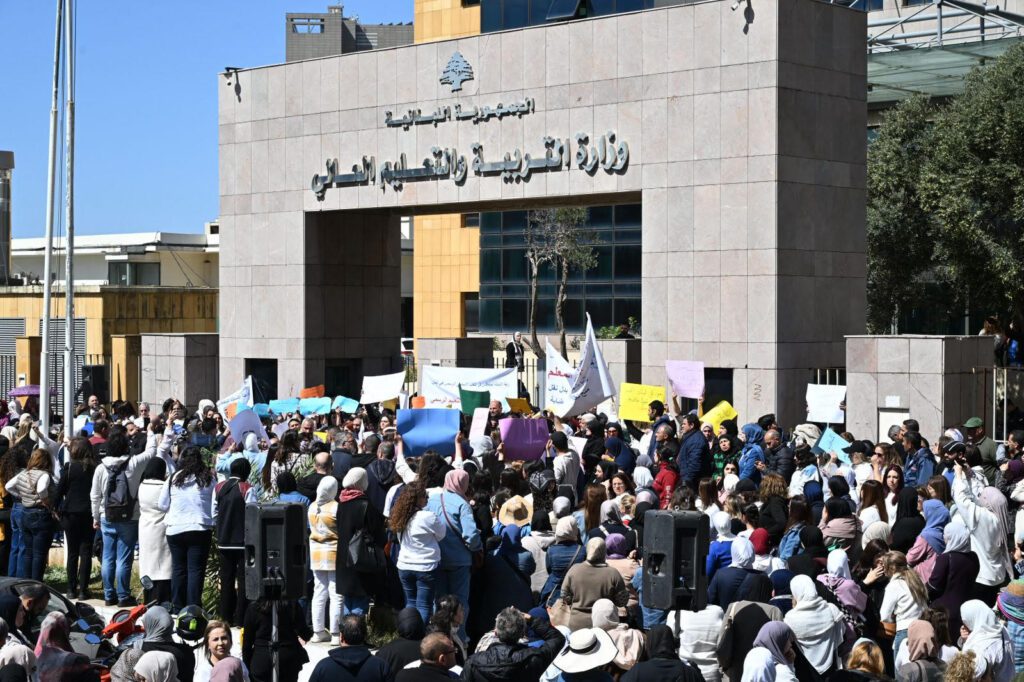After a long period of absent on-the-ground action, Lebanon’s social movement landscape has once again seen life. On Monday, the Contractual Teachers’ League in Lebanese Primary Public Schools (CTLP) organized a sit-in in front the Ministry of Education under the title of “Monday of Rage”.
It is the first for the new government, which stands to brace a series of sociopolitical challenges in the upcoming period.
The Sit-In’s Main Objective
The theme of the sit-in centered on what is called the payment of productivity allowance, valued at $375 USD and which was paid to teachers during the summer season.
According to the co-founder of the CTLP, Nisrine Chahine, the educational sector had its own financial system, separate from the rest of the public sectors.
“Today, they joined the educational sector’s financial system to that of the general public sector,” explains Chahine. “Accordingly, there’s no such thing anymore as a $375 payment of productivity allowance through the OMT money transfer system, and now [the teachers] have to get their money through the Ministry of Finance”.
“This means that they no longer earn in [fresh] Dollars and no longer access their salaries every month,” she adds.
Chahine explains that contractual teachers, which comprise 80% of the educational cadre, have an hourly wage that is equal to 150,000 Lebanese pounds, earned only in three batches throughout the year.
With the new financial system, the teachers will no longer be earning their wages in fresh US Dollars and will have their payment of productivity allowance joined with their basic salary, delivered in three batches throughout the year.
“The main issue behind the decision to escalate is to pass the payment of productivity allowance in the summer,” adds Chahine.
In address to the new government and authorities, especially in the education sector, Chahine highlights that the organizers proposed two law suggestions, under the general demand of instilling a legal system that brings teachers to the state’s auspices and protects both teachers and students.
No Delays in Reform
The new Lebanese government in both its holistic and sectoral forms will be under an intense period of scrutiny and public expectations. Prime Minister Nawaf Salam and President Joseph Aoun’s speeches set the bar high for the Lebanese population.
The return of protests at the educational level is a sign of life to many, and a representation that social organizers will not shy away from demanding access to their basic rights.
